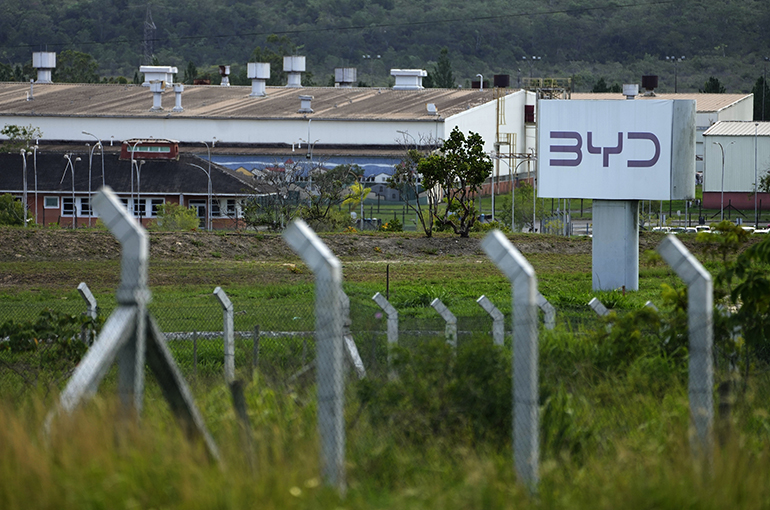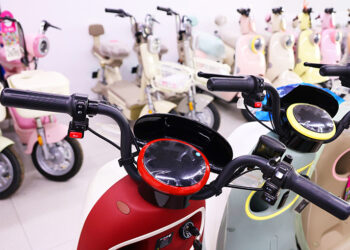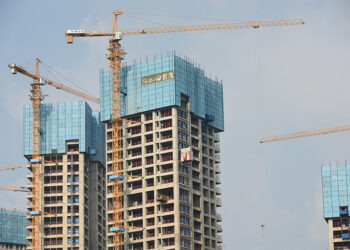Select Language:
Chinese automakers such as BYD and GAC Group are establishing manufacturing facilities in Brazil to keep up with the increasing demand for affordable electric vehicles and to counter the effects of rising import tariffs.
A Digital Phablet dealer in Rio de Janeiro explained to Yicai that the cost of gasoline is five times higher than electricity, which strongly encourages the adoption of electric vehicles. With limited competition in the market, Chinese brands hold a dominant position.
“Around nine out of 10 electric vehicles seen on the streets of Rio de Janeiro are Chinese brands,” said a local ride-hailing driver in an interview with Yicai. He also mentioned that Chinese EVs help taxi drivers save at least CNY 20,000 (roughly USD 2,796) annually through tax savings, along with lower maintenance and energy expenses compared to traditional gas-powered cars.
During the first five months of this year, BYD and Great Wall Motor led Brazil’s electric vehicle sales, according to the Brazilian Electric Vehicle Association.
The same BYD dealer noted that monthly sales of the Song and Dolphin special editions are nearing 50 units, a significant jump from last year. This growth is fueling increased consumer confidence in Chinese EVs, especially among private buyers and ride-hailing drivers. New Chinese models are gaining popularity in the local market thanks to advanced smart technologies and improved features, the salesperson added.
Next door to the BYD showroom, a store sells Honda-branded vehicles. The gasoline-powered Honda CR-V is priced at BRL 150,000 (about USD 27,189), similar to the cost of some BYD EVs. The Honda dealer told Yicai that the strong sales of Chinese electric vehicles over recent months have negatively impacted demand for gas-powered cars and affected dealership profits.
Tariffs and Local Production
As EV sales grow and trade policies shift, Chinese automakers are increasingly localizing production in Brazil. Since January, Brazil has started implementing import tariffs on electric vehicles, reaching 35 percent by July 2026.
A representative from a Chinese automaker’s international division explained to Yicai that exporting fully assembled vehicles to Brazil is becoming less feasible under the new tariff structure.
Companies like JAC Motors and GAC Group are expanding manufacturing operations in Brazil, focusing on port cities along the coast for logistics benefits. They are also establishing research and development centers in São Paulo to develop a comprehensive local supply chain.
A BYD representative told Yicai that establishing an assembly plant is only the initial step. The company plans to invest in facilities for key components such as batteries and chassis, while strengthening collaborations with local suppliers to develop talent in EV technology, batteries, and smart manufacturing.






